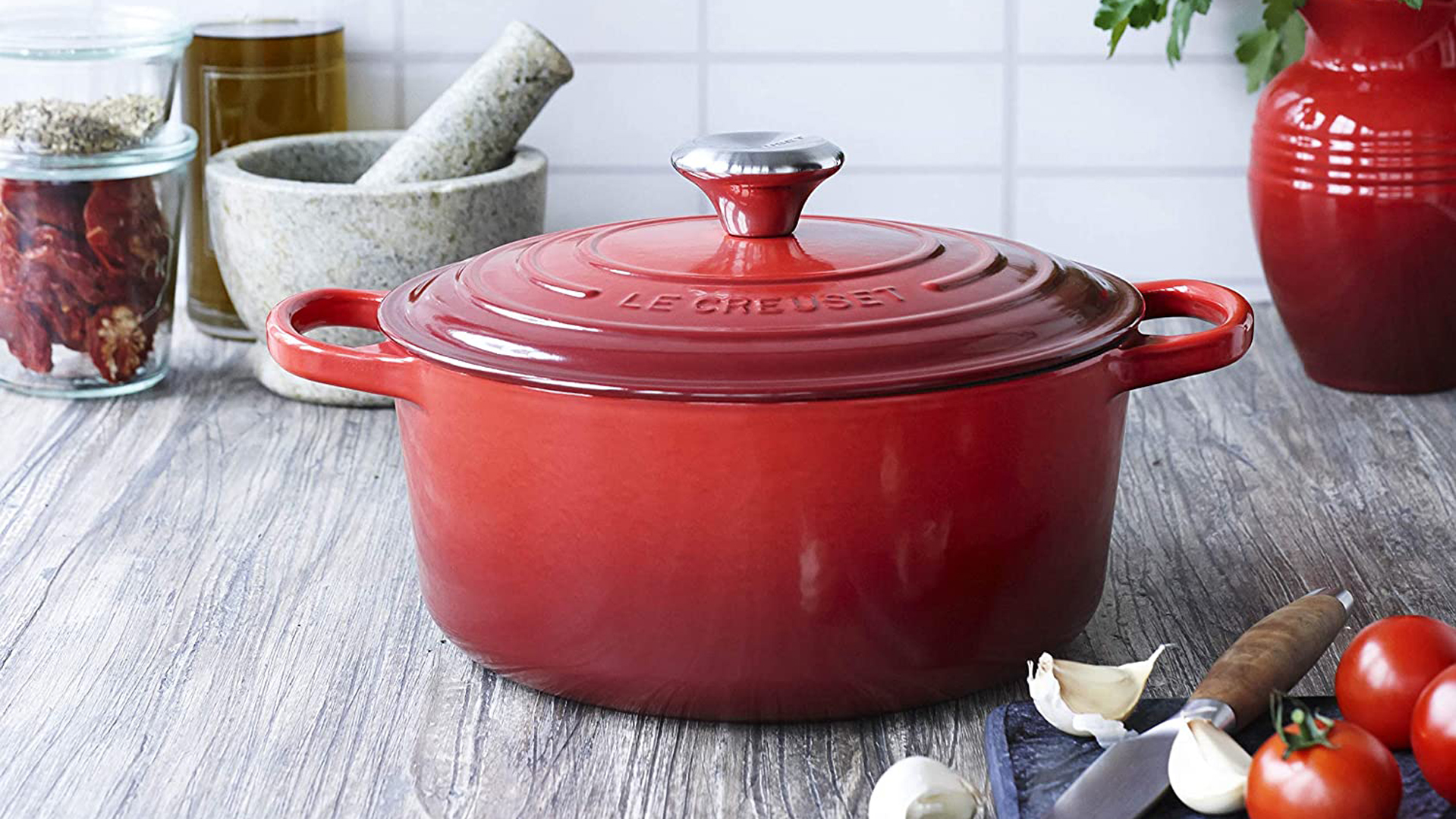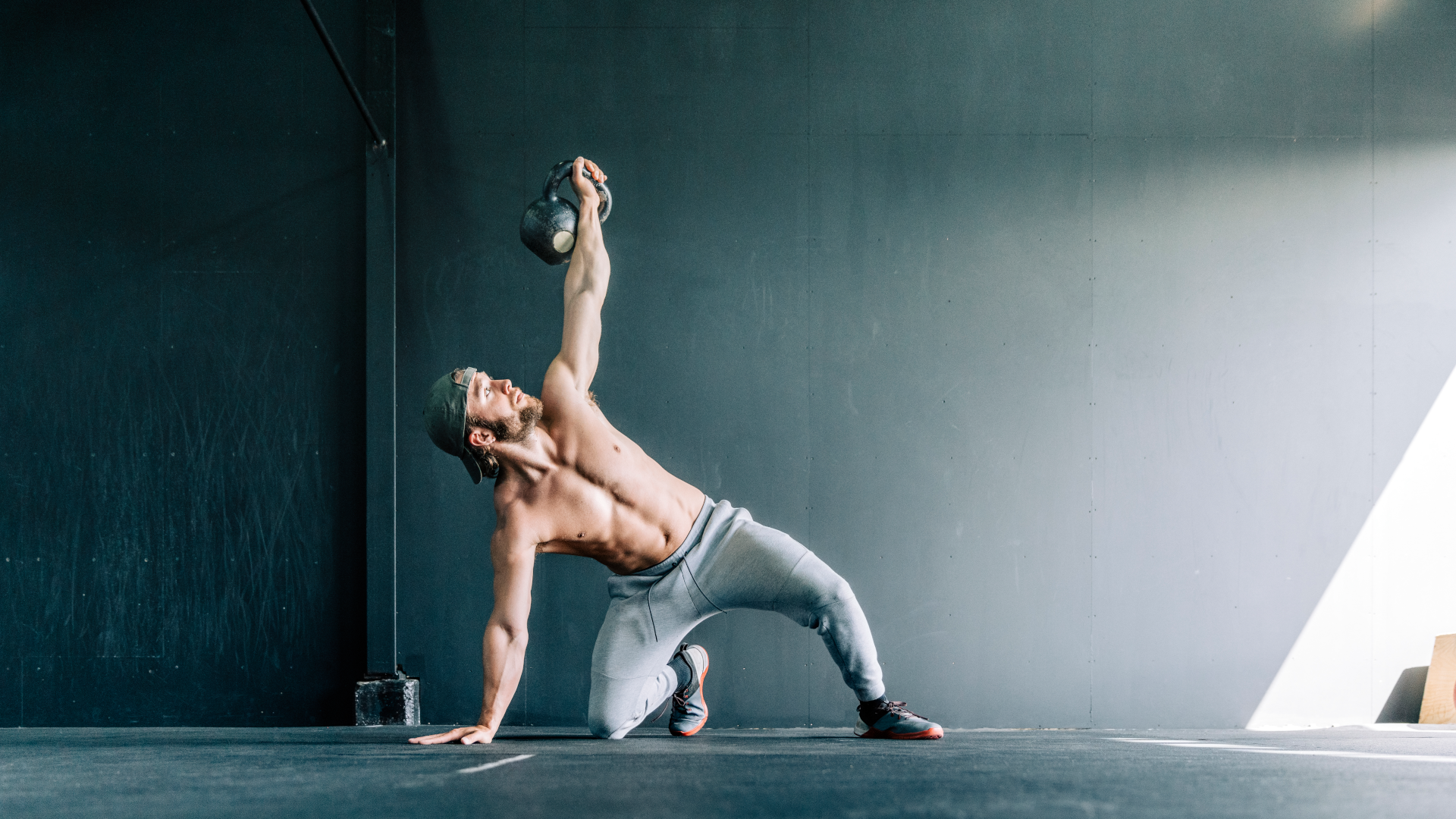

One of the great pleasures in life if you're a keen cook is buying a new pan. However, arguably an even greater pleasure is having pans that you know and trust and have been using for years. Once you've had a pan for 5 years, you start to think, 'Okay I paid £200/$200 for this, but now it's starting to feel like good value.' And once you've used a pan or other piece of cookware for 10 years or even 20 years, you can feel thoroughly smug about your intelligent purchasing decision, way back in the early 21st century. Le Creuset pans are what we're looking at here, as they are by some distance the best-selling 'premium' pots and pans that people buy, with the intention of still having them decades later. However, these 3 tips all apply just as well to any other type of premium cookware or, come to that, non-premium cookware.
Having already looked at the thorny issue of 'Should you buy a Le Creuset?' – spoilers: the answer was 'probably, yes' – let's now move on to preserving it. As I mentioned, these tips are not specific to Le Creuset only, but they are based on my experience of using Le Creuset pots and pans. Also, more people search for info on Le Creuset, so I am trying to cunningly reel them in with my keyword cleverness.
Need some shopping inspiration? We have guides to the best saucepan sets and best non-stick pans to buy. At the bottom of the page, you'll find the best prices on a huge quantity of Le Creuset pots, pans, bakeware, accessories and more, courtesy of our tireless, artificially intelligent Price-o-BotsTM. For now, here are the mistakes made by fools. Don't be a fool!
1. Not shopping around or considering alternatives
So you just go to a shop, or the internet, and pay full price for your Le Creuset cookware. What, are you crazy? Le Creuset may be a premium brand but that certainly doesn't mean there aren't deals to be had on its products. Actually, that's an understatement; there are always deals to be had on its cookware and other items.
Unless you are in the unusual situation of needing a very specific size and type of pan in a specific colour, right now, you are always well advised to shop around, or to wait for a better buying opportunity to come along. This could be during seasonal sales, or it could just be because an online retailer such as Amazon suddenly decides to drop some prices.
It's also worth considering whether you must swear eternal allegiance to Le Creuset. There are plenty of other brands making high quality cookware. Personally I prefer the cast iron cookware of Staub to Le Creuset‘s, but maybe that's just me being contrarian. A quick visit to the virtual shelves of John Lewis in the UK or Sears or perhaps Williams-Sonoma in the USA will reveal all manner of other premo pan options. Again, you should shop around or wait around for the right price to appear, or consider a slightly different size Dutch oven, or one that's in the colour that nobody appears to like, this season.
Another alternative is to buy something that's just cheap in the first place, such as Amazon's cast iron Basics range or those pans they sell in Aldi from time to time. These pots look uncannily like Le Creuset and yet somehow, they are anything up to 80% cheaper. I can only assume that the coatings on these things, whether that be enamel or non-stick, will not last as long as on premium cookware, but obviously I have no way of proving that, and from the reviews, people clearly love their cheapo pots. As long as they haven't been cast in some drastically terrible way, the cast iron portion of any pot should last forever, regardless of the brand selling it.
Sign up to the T3 newsletter for smarter living straight to your inbox
Get all the latest news, reviews, deals and buying guides on gorgeous tech, home and active products from the T3 experts
Look, not to big ourselves up or anything, but we have this guide to the best cheap Le Creuset deals, and it’s kind of a big deal. There are also some widget-based deals to be found at the bottom of this very page. If the volcanic orange Le Creuset pot or grill you want isn't on sale right now, why not consider getting one in taupe, or one that is a slightly different size but mysteriously £100/$100 cheaper? Or just wait for a while, and enjoy that sweet money-off feeling in a month or two's time… Believe me, absolutely everything Le Creuset sells is on sale at some point. It's always just a matter of time…
2. Cooking on too high a temperature
Okay, cast iron is essentially indestructible and Le Creuset's enamel coatings mean their pans can't really rust. So I won't lecture you about correct Dutch oven, grill and casserole temperature control too much.
However, another important quality of cast iron is that it heats up very quickly and not always terribly evenly. So that is a much better reason to not go too hot, too soon on your precious pans, unless of course you just love the taste of burnt foodstuffs. Contrary to popular belief, you should also always coat the base of Le Creuset cast iron cookware with fat of some sort before adding food and starting to cook, whether that's butter, animal fat, vegetable oil or some combination of the three. This should be heated until it's shimmering hot but not smoking excessively, before you start adding other ingredients.
You can't really damage these pots with domestic ovens or hobs. However, you sure as hell can damage what you're cooking in them, and create some horrifically burnt-on food mess that will take a lot of scrubbing, swearing and bicarbonate of soda to remove. Low to medium cooking temperatures are so much better with cast iron pans.
Except, of course, if we are talking about Le Creuset's cast iron grill pans – you are pretty much obliged to take these as hot as you can, since the whole point of them is to create sear lines.
What you need to be far more careful with are Le Creuset's non-stick and stainless steel pans. These are good products but realistically, the non-stick coating is no more resistant to really high heat than what you'll find on much cheaper pans, while the bases tend to be made up of layers of different metal that can actually buckle if heated too much and too fast, particularly on induction hubs. That’s my experience as someone who used to rely on very high heat all the time when cooking, and it’s also SCIENCE.
Stainless steel pans are different to non-stick but they just don’t need really high heat, and will eventually discolour and possibly warp if you keep subjecting them to it.
So please, for the best results, heat these pans on a medium heat rather than whacking your hob/cooktop all the way to maximum. If you're using induction, don't use the boost setting and do use a ring that is more or less the same size as your pan base. If on gas, again go for a burner of appropriate size, and the flames should not be licking up the side of the pan.
Le Creuset's non-stick finishes – and all other brands’ – will degrade over time no matter what you do, but you will speed the process up drastically if you use too high a heat. The good news is that Le Creuset and other premium pans will heat up perfectly quickly, and evenly, without the need for blast furnace-style temperatures.
3. Not cleaning your pots and pans correctly
My mom actually has a poster on the door of the cupboard where she keeps her saucepans that reads, 'If you put my nice pans in the dishwasher, I will KILL you'. See? That's where I get my aggression from.
This is always a vexing topic, because all Le Creuset cast iron, steel and non-stick pots and pans are described as being 'dishwasher safe' but plenty of people, including my mother, are very much of the opinion you should not put them in the dishwasher. That’s because dishwashers, particularly older or cheaper ones, generally rely on consistently high temperatures, and abrasive chemicals.
Certainly to get the maximum longevity from your pans and keep them looking their absolute, box-fresh best, you should wash them by hand.
Unless you are doing something horribly wrong, your non-stick pans should only ever need washing by hand, because the whole point of them is that food doesn't stick to them – clue's in the name. If you must use the dishwasher, try using the shortest wash programme available, and a very small amount of dishwasher liquid detergent instead of a tablet. If you do this too much I suspect it will gunk up your machine, but I do it every now and then and it doesn't appear to cause any problems.
Yes I know I just said you should hand-wash non-stick pans but I'm a busy guy, okay?
In my experience, it's perfectly alright to do Dutch ovens and casseroles in the dishwasher, especially if you use a short wash programme. Grill pans are a bit trickier and I have usually ended up accepting they'll never be completely clean, once you've seared a few steaks at super-high temperatures. The dishwasher brings them out clean enough for me, though.
Soaking Le Creuset's non-stick pans and coated cast iron cookware works pretty well if you have charred remnants stuck to them. But obviously what works even better is not burning stuff on to them in the first place – see mistake #2, above!
One final thing: do let your pans cool before soaking, washing or dishwashing them. Metal in its finished state just does not like going from being incredibly hot to much colder in a matter of milliseconds, by being plunged into water. It doesn't like it at all.
- More mistakes to dodge
- Mistakes everyone makes when growing houseplants
- Mistakes everyone makes with vacuum cleaners
- Mistakes everyone makes with their coffee machine
- Mistakes everyone makes with Le Creuset and other premium pans
- Mistakes everyone makes with air fryers
- Mistakes everyone makes with ebikes
- Mistakes every cyclist makes with bikes
- Mistakes everyone makes with their fridge freezer
- Mistakes everyone makes with air purifiers
Le Creuset cookware best price widgets
Duncan is the former lifestyle editor of T3 and has been writing about tech for almost 15 years. He has covered everything from smartphones to headphones, TV to AC and air fryers to the movies of James Bond and obscure anime. His current brief is everything to do with the home and kitchen, which is good because he is an excellent cook, if he says so himself. He also covers cycling and ebikes – like over-using italics, this is another passion of his. In his long and varied lifestyle-tech career he is one of the few people to have been a fitness editor despite being unfit and a cars editor for not one but two websites, despite being unable to drive. He also has about 400 vacuum cleaners, and is possibly the UK's leading expert on cordless vacuum cleaners, despite being decidedly messy. A cricket fan for over 30 years, he also recently become T3's cricket editor, writing about how to stream obscure T20 tournaments, and turning out some typically no-nonsense opinions on the world's top teams and players.
Before T3, Duncan was a music and film reviewer, worked for a magazine about gambling that employed a surprisingly large number of convicted criminals, and then a magazine called Bizarre that was essentially like a cross between Reddit and DeviantArt, before the invention of the internet. There was also a lengthy period where he essentially wrote all of T3 magazine every month for about 3 years.
A broadcaster, raconteur and public speaker, Duncan used to be on telly loads, but an unfortunate incident put a stop to that, so he now largely contents himself with telling people, "I used to be on the TV, you know."
-
 This is the sound of BMW's upcoming Neue Klasse EVs
This is the sound of BMW's upcoming Neue Klasse EVsHas BMW cracked the problem of making EVs sound fun with its next-gen soundscape for its Neue Klasse cars
By Alistair Charlton
-
 Build unshakeable core strength with a kettlebell and these three exercises
Build unshakeable core strength with a kettlebell and these three exercisesAdd this to the end of your workout to fire up your midsection muscles
By Bryony Firth-Bernard